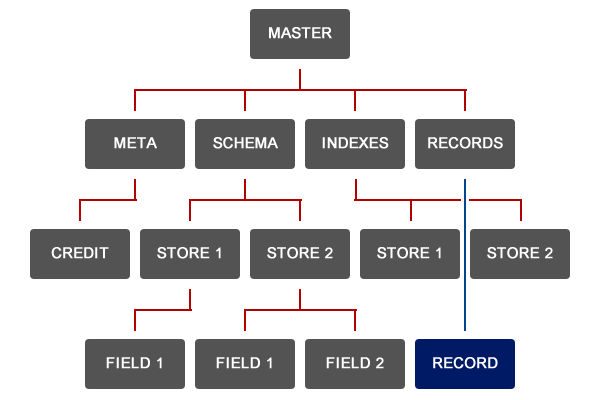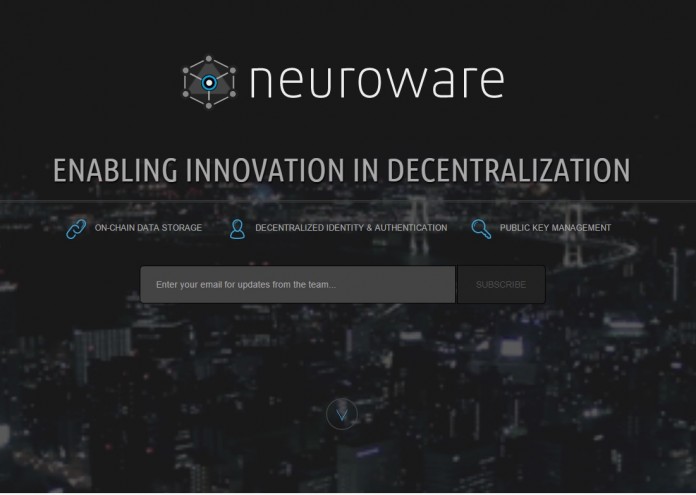Neuroware, the developer of the Blockstrap blockchain API, has unveiled a distributed database protocol for blockchains, called Everstore. The Kuala Lumpur-based technology firm heralds it as the first protocol to completely replicate database functionality directly on the blockchains, with fields, indexes and relationships.
The Everstore protocol grew out of the work that Neuroware did for a May 2015 hackathon organized by Singapore banking multinational DBS. Neuroware this week published a white paper on Everstore, available on its website.
With all the controversy about data scalability of blockchains, we decided to interview Mark Smalley, co-founder & CEO of Neuroware, about the significance of bringing to market a distributed database protocol for blockchains.
How long has Neuroware been working on the Everstore distributed database protocol?
We initially came-up with the Everstore protocol whilst helping the Development Bank of Singapore (DBS) organize the world’s first bank-backed hackathon back in May of 2015. During that event, the vast majority of teams wanted to store structured data on the blockchains beyond the regular 38 to 78 byte limits of a singular OP_Return, which is the standardized way to store arbitrary data on the Bitcoin and Dogecoin blockchains. We had just started introducing HD (BIP32) wallets as part of the Blockstrap HTML5 Framework that was being using at the event and realized we could be using the predictability of the hierarchical addresses as specific nodes representing different aspects of the data structure. We’ve been working on the underlying protocol and an accompanying JS framework and basic GUI since the DBS event.
How does blockchain scalability impact Everstore?
To be honest, I think the more relevant question should really be how does Everstore impact blockchain scalability - because Everstore alone will only be able to scale as far as the network itself can scale. The fact that it is a blockchain-agnostic protocol helps it scale to other networks, but each network still has its own scaling issues, no different to every database only being able to scale as far as the memory or storage capabilities allow. Where we fundamentally differ from most organizations with an opinion on scaling - and more specifically the block-size debate is that rather than debating the size of the blocks, perhaps we should instead be debating their contents? We believe that transactions could contain more OP_Returns to allow for extra data to be saved to the blockchain and that miners could be rewarded handsomely for doing so. We’ve discussed this a little further in our BitDB post, which we will be expanding upon soon. (http://neuroware.io/blog/introducing-bitdb-the-complimentary-blockchain-agnositic-node/)
You indicate in your white paper, that Everstore will likely be “the world’s slowest database”. What are the tradeoffs and advantages of Everstore?
Not only is Everstore the only database that never suffers from down time and is freely available to access at any point and at no cost beyond the initial broadcasting fee, but it also means that for the first time in history; we no longer need to guard our own truth or host our own servers, nor do we need to spend precious time and resources protecting them from potential hackers. It comes fully equipped with an inescapable audit of everything that can never be deleted; where each edit will be available forever and you can access any instance on any device with an internet connection. There’s also the new field-types introduced by Everstore such as votable entries or its ability to allow you to share certain records, tables or even just fields with select individuals and have every bit of information and change all linked back to just one master key.

Why is there a trade-off between immutability and speed of transactions?
What I really meant was that from a database perspective you can choose between a fast database like MongoDB or an immutable one such as Everstore. Nothing is ever truly immutable as the planet could be destroyed tomorrow and everything is then lost. Nonetheless, data stored in an Everstore instance on the Bitcoin blockchain is about as immutable as it gets.
What types of distributed applications could Everstore be used for?
Any application requiring a database could use Everstore, but the question of whether they should be using it would be dependent on whether they wanted to use it as a way of liberating themselves from the need of managing their own data or whether it was because they had especially valuable data and or data that they cannot afford to lose or corrupt. Any institution serving the public or responsible for public data, such as births, deaths, marriages, education, budgets and so forth makes perfect sense, as does identity as a whole, but that’s a lengthy subject of its own. We’re also seeing use from companies that are required to share data but do not necessarily want to give access to their central databases. It’s a wide selection of use-cases from a broad group of industries that I could quite literally spend all day talking about…
Do you have use cases for Everstore?
Our next public use of Everstore will be in releasing the BlockAuth protocol - http://blockauth.org - It uses Everstore and provides entities with a way to self-manage identities and authorisation online. We actually had a working MVP for this particular protocol prior to the DBS hackathon but took it offline so it could be retrofitted with Everstore and in-turn remove previous limitations and inefficiencies that stemmed from having no way to store structured data on the blockchains. Unfortunately, the bulk of the work that we are doing at the moment is under strict confidentiality agreements that prevents us from spilling too many beans, but there is one client who we recently signed-up who has given us permission to talk about them. As such, you may want to keep an eye on ATA-Plus and the future of equity crowdfunding 🙂
There has been a lot of news about BigChainDB. How does Everstore compare to it?
To the best of our knowledge; Everstore is not only the first blockchain-based database protocol, but is also the first blockchain-agnostic distributed data-storage method. It is also the only structured data solution for the blockchains that stores everything on the blockchains. From the underlying schema of any one particular instance, to each and every field type and value. With Everstore, you can quite literally run an entire dynamically generated full web-application from a simple static site-provider such as GitHub, updating content from your desktop using a HTML interface that communicates directly with the blockchains. There’s nothing else quite like it.
There is research out there now into blockchain utility for security, authentication, transactions, even reputation among connected devices (e.g. Ethereum). Would Everstore be applicable to IoT systems?
In response to your last point, Everstore is especially suitable for the Internet of Things as it provides a common ground. Different entities can be given different levels of access to different parts of the data without both devices needing to be connected at the same time or even trust each other.









Thanks for being the first to take interest in Everstore and taking the time to interview me. Appreciate your enthusiasm and am happy to answer any further questions that anyone might have?